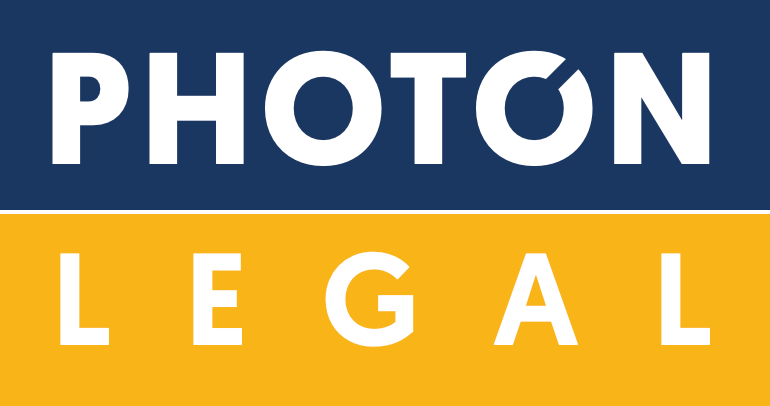
Introduction
In this fast-paced and competitive industry, safeguarding your intellectual property (IP) has become imperative. Why? Because securing your inventive solutions not only just shields your competitive advantage; it unlocks a world of opportunities, attracting investors and paving the path for fruitful partnerships. As the health tech industry continues to grow rapidly, protecting intellectual property (IP) has become crucial for start-ups in this sector. Safeguarding your innovations and inventions not only helps secure your competitive advantage but also attracts investors and potential partnerships. In this blog, we will explore some essential tips for health tech start-ups to navigate the complexities of intellectual property and maximize their chances of success.
The Rising Wave of AI in Health-Tech: Innovations, Patents, and Market Advantage
The field of AI in Health-Tech is experiencing rapid growth and innovation, with a focus on patent filings to secure early market advantages. The potential socioeconomic impact of AI in healthcare has fueled the interest in developing AI-driven solutions. To protect their innovations and gain a competitive edge, many companies are turning to intellectual property (IP) strategies, particularly the filing of patents.
The number of patent filings related to Health-Tech AI inventions has significantly increased over the years. In 2019 alone, there were over 28 new filings per day for Health-Tech AI innovations worldwide. (Read source) Various sectors within medical technology have witnessed substantial growth.
Understand the Different Types of Intellectual Property
Intellectual property encompasses various forms of legal protection. It’s essential for health tech start-ups to understand the different types and determine which ones apply to their innovations. The three main categories are patents, trademarks, and copyrights.
a. Patents: Patents protect new inventions or improvements to existing inventions. Health tech start-ups should consider patenting their unique technological solutions, software algorithms, medical devices, or diagnostic tools.
b. Trademarks: Trademarks safeguard your brand identity, including names, logos, and slogans. Registering a trademark can prevent others from using similar marks in the same industry, helping you build brand recognition and trust.
c. Copyrights: Copyrights protect original creative works, such as software code, websites, user interfaces, or educational content. Registering copyrights provide legal evidence of ownership and grants exclusive rights to reproduce or distribute the protected material.
Securing Intellectual Property in the Health Tech Industry
#1 Conduct a Thorough Prior Art Search
When it comes to health tech innovations, conducting a comprehensive prior art search becomes even more critical. For instance, if you’re developing a new medical device, it’s essential to identify existing patents, research papers, and clinical trials in the relevant area. This step helps ensure that your invention is novel and non-obvious, and reduces the risk of encountering obstacles during the patenting process.
#2 File Patents Early and Strategically
In the fast-paced health tech industry, timing is crucial. Early filing of patents is essential to protect your innovation from being claimed by competitors. Consider the example of a novel AI-powered diagnostic tool. Filing a provisional patent application or obtaining the “patent pending” status allows you to establish an early priority date while you refine your invention, providing you with a valuable head start in a competitive market.
#3 Implement Confidentiality and Non-Disclosure Agreements
Confidentiality and non-disclosure agreements (NDAs) play a vital role in the health tech sector, where collaboration and partnerships are common. For instance, if you’re working with research institutions or external developers to create a breakthrough telemedicine platform, an NDA ensures that your proprietary technology, algorithms, and patient data remain protected, minimizing the risk of unauthorized disclosure or misuse.
#4 Regularly Monitor and Enforce Your Intellectual Property Rights
Health tech innovations are often susceptible to infringement, making active monitoring and enforcement of IP rights crucial. Consider a scenario where a competitor develops a product that closely resembles your patented remote patient monitoring system. Regularly monitoring the market and engaging in enforcement actions when necessary, such as issuing cease-and-desist letters or pursuing legal action, helps protect your IP and maintain your position in the market.
#5 Establish a Comprehensive IP Strategy
In the health tech sector, an effective IP strategy involves aligning your IP goals with your overall business objectives. For example, if your focus is on developing groundbreaking AI algorithms for personalized medicine, building a strong patent portfolio and protecting your algorithms’ underlying technology becomes paramount. A comprehensive IP strategy allows you to allocate resources effectively and maximize the value of your IP assets.
#6 Consider International IP Protection
Health tech companies often have global aspirations, necessitating international IP protection. For instance, if you have developed an innovative wearable device for monitoring chronic conditions, securing international patents and trademarks can help safeguard your technology in foreign markets and protect your brand in a foreign markets. Consulting with IP professionals experienced in international IP laws ensures that you navigate the complexities of different jurisdictions and develop a strategy to protect your IP assets globally.
#7 Leverage Open Innovation and Licensing
In the health tech industry, open innovation and licensing can unlock opportunities for growth and collaboration. For example, partnering with pharmaceutical companies to license your AI-driven drug discovery platform can accelerate the development of life-saving medications. By carefully negotiating licensing agreements, you can maintain control over your IP while benefiting from the expertise and resources of larger organizations.
By incorporating these considerations and examples into your health tech IP strategy, you can effectively protect your innovations, foster growth, and contribute to the advancement of healthcare technologies.
Conclusion
In the competitive landscape of health tech start-ups, safeguarding intellectual property is paramount. By understanding the different types of IP, conducting prior art searches, filing patents strategically, implementing NDAs, and enforcing your rights, you can protect your innovations and build a strong foundation for success.
Contact us at Photon Legal to take the necessary steps in safeguarding your invaluable health-tech innovations. With our team of accomplished attorneys by your side, you can trust us to provide expert guidance and unwavering support in protecting your ideas and maintaining a strong competitive edge.
Why Choose Photon Legal?
- Our attorneys have extensive experience in health-tech intellectual property (IP) law, ensuring that we understand the unique challenges and opportunities in your industry.
- We provide personalized strategies tailored to your specific health-tech innovations, maximizing the protection and commercial potential of your ideas.
- We have a successful track record of helping health-tech innovators protect their ideas and achieve their business goals, ensuring that you are in capable hands.


